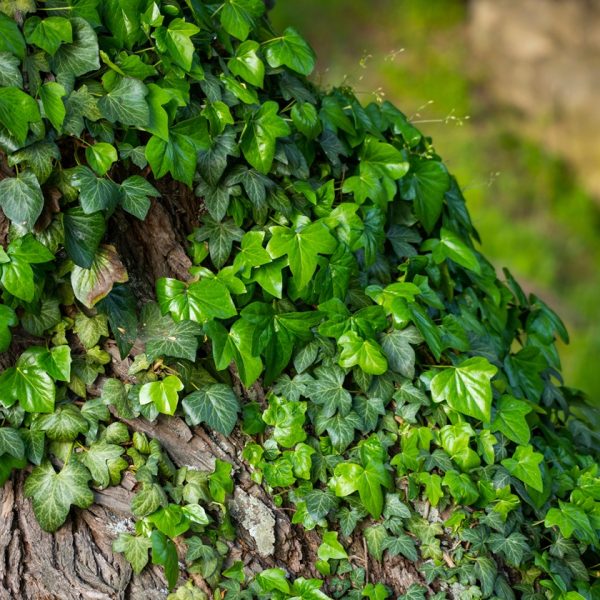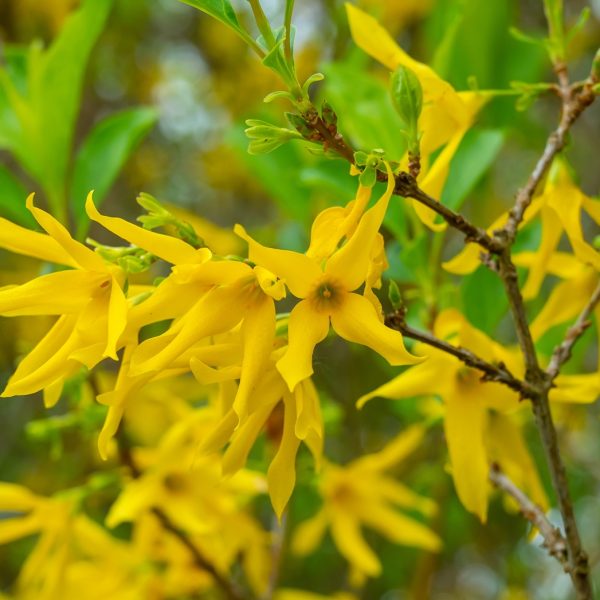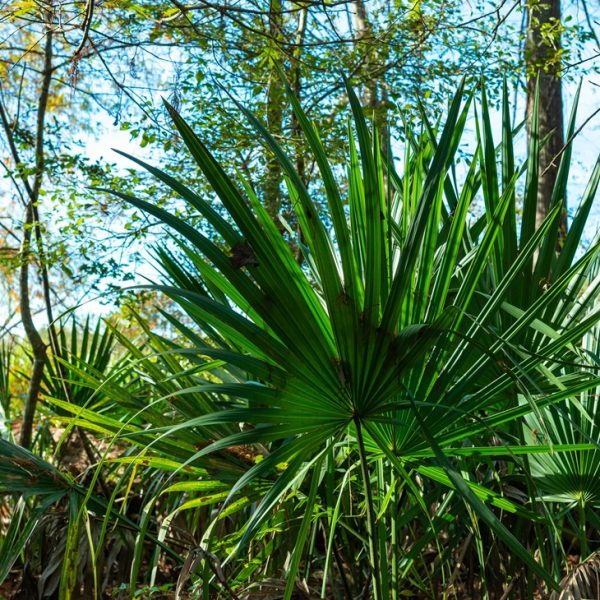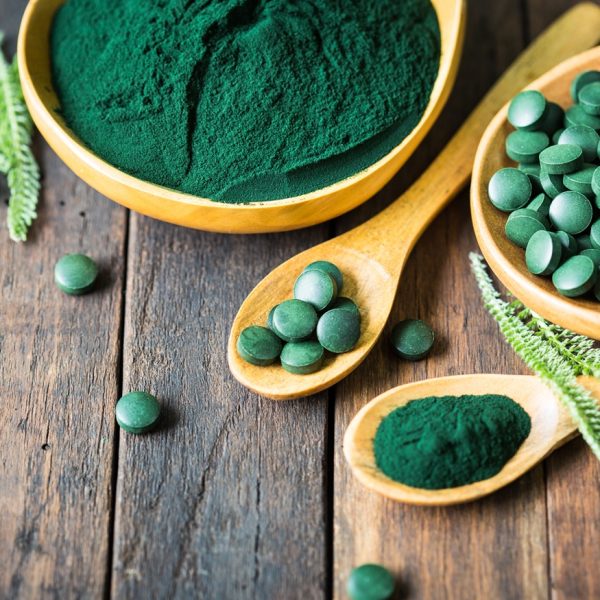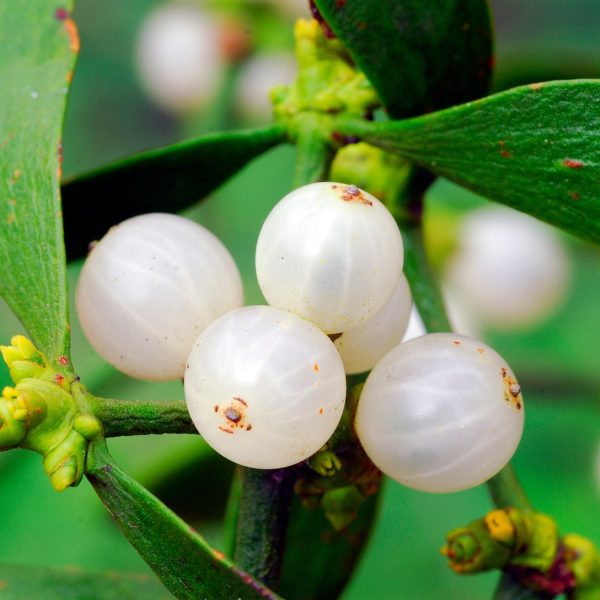Cough is one of the most common medical complaints but where do coughs come from? We explain the origins of coughs and the best herbs.
Understanding coughs

It is normal for most of us to cough occasionally during an average day to ‘clear the throat’ or airways in general from inhaled dust or other particles, or food or drink which may have ‘gone down the wrong way’. Coughs that are more persistent than this occasional ‘tickle in the throat’ may be linked to a cold, flu, or another health issue.
Coughs are one of the most common medical complaints and account for around 30 million doctor’s visits per year (1). Most coughs tend to go away by themselves within 3–4 weeks and it is not usually recommended to visit a doctor for a simple acute cough (2) (see signs and symptoms section for exceptions to this).
When a cough goes on for a period of days or weeks, even if the cause is a simple cold or flu, it can become tiring for the body and begin to deplete energy reserves, which might make shaking it off more difficult. This is where herbal medicines can be a great support in helping to reduce the impact of the cough on overall health and energy levels, providing support to overcome the underlying cause and restoring the body’s ability to shift it.
How do coughs work?

Asthma occurs due to the way the airways over-react to triggers (airway hyperactivity). Many of these triggers are also allergens, but can be pollution, cold air, exercise, and respiratory infections (2). The relationship between atopy, which is the tendency towards allergies and eczema, and asthma is well-established. Atopic individuals are sensitive to potential allergens. These allergens may be pollen house dust mites, pets, cockroaches, mould spores, or medication (4). Allergen inhalation initiates the release of histamine and other bronchoconstrictory agents, which also alter consistency of the mucus. The airways get narrower, and breathing becomes difficult.
A cough is a natural bodily reflex which causes an explosive expiration designed to prevent aspiration (the inhalation of foreign materials into the airways). It is a protective and clearing mechanism which promotes the removal of secretions and foreign particles from the airways.
When a cough goes on for 3 weeks or less, it is considered acute, whilst coughs that last longer than this are considered either subacute (3 – 8 weeks), or chronic (8 weeks+) (1).
There are four main kinds of cough, and all have different herbs to treat them.
Wet coughs
This is a kind of cough which brings up mucus, sputum or phlegm. For example, people with sinusitis often experience this symptom due to postnasal drip where mucus from inflamed sinuses accumulates at the back of the throat.
Dry coughs
These are “non-productive” meaning no sputum is produced, and they can often feel tickly in the back of the throat. Many different things can cause a dry cough, like acid reflux or allergies.
Paroxysmal coughs
A paroxysmal cough is violent and uncontrollable that can be painful and tiring to experience. Some people can feel the need to vomit after these kinds of coughs, and they are often caused by bacteria for example with whooping cough.
Croup cough
This is a common childhood condition that affects children and babies. It is usually mild, but it can be serious and need a doctor’s intervention. Symptoms can include difficulty breathing, a hoarse voice, a raspy voice or a barking cough.
Understanding the root of coughs

The most common causes of acute coughs are viral upper respiratory infections, also known as the common cold, and acute bronchitis (in around 10% of bronchitis cases the origin is bacterial rather than viral) (1). Healthy adults may get a couple of colds per year, and children more than this as their immune systems are developing. Frequent colds/infections which lead to a cough, may be a sign of a weakened immune system.
There is also a traditional notion that persistent respiratory issues are linked to digestive dysfunctions, with the respiratory mucosa seeming to be particularly responsive to reflex responses from the upper digestive tract (3) which we will look at further in the herbal solutions section.
Other common causes of acute cough include (1,2):
- Smoking
- Heartburn (acid reflux)
- Allergies – for example, hay fever / allergic rhinitis
- Mucus dripping down the throat from the back of the nose (e.g. in allergic rhinitis or acute rhinosinusitis)
- Pertussis (whooping cough)
- Acute exacerbations of chronic obstructive pulmonary disorder (COPD)
- Asthma
- Congestive heart failure
- Pneumonia
- Aspiration syndromes
- Pulmonary embolism
If there is no obvious cold or flu, then a persistent cough may indicate one of the above causes.
Herbs can be a great source of support for the immune system and many other health conditions which a cough may be a symptom of, as well as helping to directly alleviate the symptoms of a cough.
Although herbal medicine can provide symptomatic relief for coughs, it looks beyond just the symptoms of ill health and aims to get to the root of it, rebalancing the body so that its systems can function in a more harmonious, balanced, and healthy way. This is something that a herbalist would be able to look at with you, as well as how to best support and build up a strong immune system so that you are prone to get fewer coughs.
You can see the where to find a herbalist page for details on how to book a consultation with a herbalist.
Signs and symptoms

The most obvious sign of a cough is coughing itself, which is unmissable. However, there are some cases when a cough may be accompanied by other symptoms which make it advisable to seek medical attention (2):
- The cough has continued for more than 3 weeks (persistent cough)
- The cough is very bad or quickly gets worse (e.g. a hacking cough or cannot stop coughing)
- Feeling very unwell
- Cough is accompanied by chest pain
- Sudden weight loss for no reason
- Sides of your neck feel swollen and painful (swollen glands)
- Difficulty breathing
- Weakened immune system (e.g. because of chemotherapy or diabetes)
Note: If you are coughing up blood see a doctor urgently.
Herbal solutions

Breathing is undoubtedly a source of vital energy, a concept which spans across traditions of Chinese medicine, Yoga, Ayurveda, and modern science.
Traditionally speaking the lungs are considered the source of the body’s rhythm and receive the most exposure to contact with the exterior through the inhalation of air and therefore pathogens. This can be put into context when we consider the importance of breathing for overall health (3) and how changes in our rhythm of breathing can have physiological impacts on the other body systems. Although coughing is a natural protection mechanism for the lungs, ongoing coughs interrupt the healthy rhythm of breathing, and therefore our source of vital energy becomes depleted.
When we consider these traditional ideas about the role of the lungs and translate them to the treatment of coughs, which are commonly of viral origin, it is worth noting that modern viruses continue to evolve and often remain elusive to the control of modern medicines, COVID-19 being a prime example of this.
This highlights why solely focusing the treatment of coughs on attacking a virus or pathogen can be futile. It exemplifies why the holistic approach of herbalism is of value, as the foundation of treatment will be supporting and tonifying the tissues of the respiratory system, and supporting the body’s natural defences to build stronger resilience.
Although herbal medicine views every individual holistically meaning that treatment may vary from person-to-person, there are some general principles when it comes to supporting the respiratory system which will be applicable in many cases of coughs. There are certain actions herbs produce in the body which are useful in the treatment of coughs. These are outlined below and are applicable on a case-by-case basis according to the nature and qualities of the cough.
Expectorants and mucolytics
Expectorant herbs help to bring mucus up from the lungs, and mucolytics alter the production and consistency of mucus, making it thinner and easier to bring up.
Pungent spices tend to have this expectorant effect, which may be due to the warming effect on circulation, increased blood flow to the respiratory mucosa, and possibly a decrease in the thickness of mucus, allowing it to clear up from the lungs.
Ginger is a great example of a warming, pungent expectorant typically taken for coughs and colds, as well as cinnamon which it blends well with in a simple tea. Aniseed and fennel are further examples of warming expectorants.
Stimulating expectorants tend to work via a reflex action stimulating the upper digestive mucosa, which promotes mucociliary activity of the respiratory system (3).
Mucociliary clearance or the ‘mucociliary escalator’ is another protective mechanism aside from coughing which helps to clear the respiratory system of particles and pathogens, preventing them from entering the sensitive tissues of the lungs.
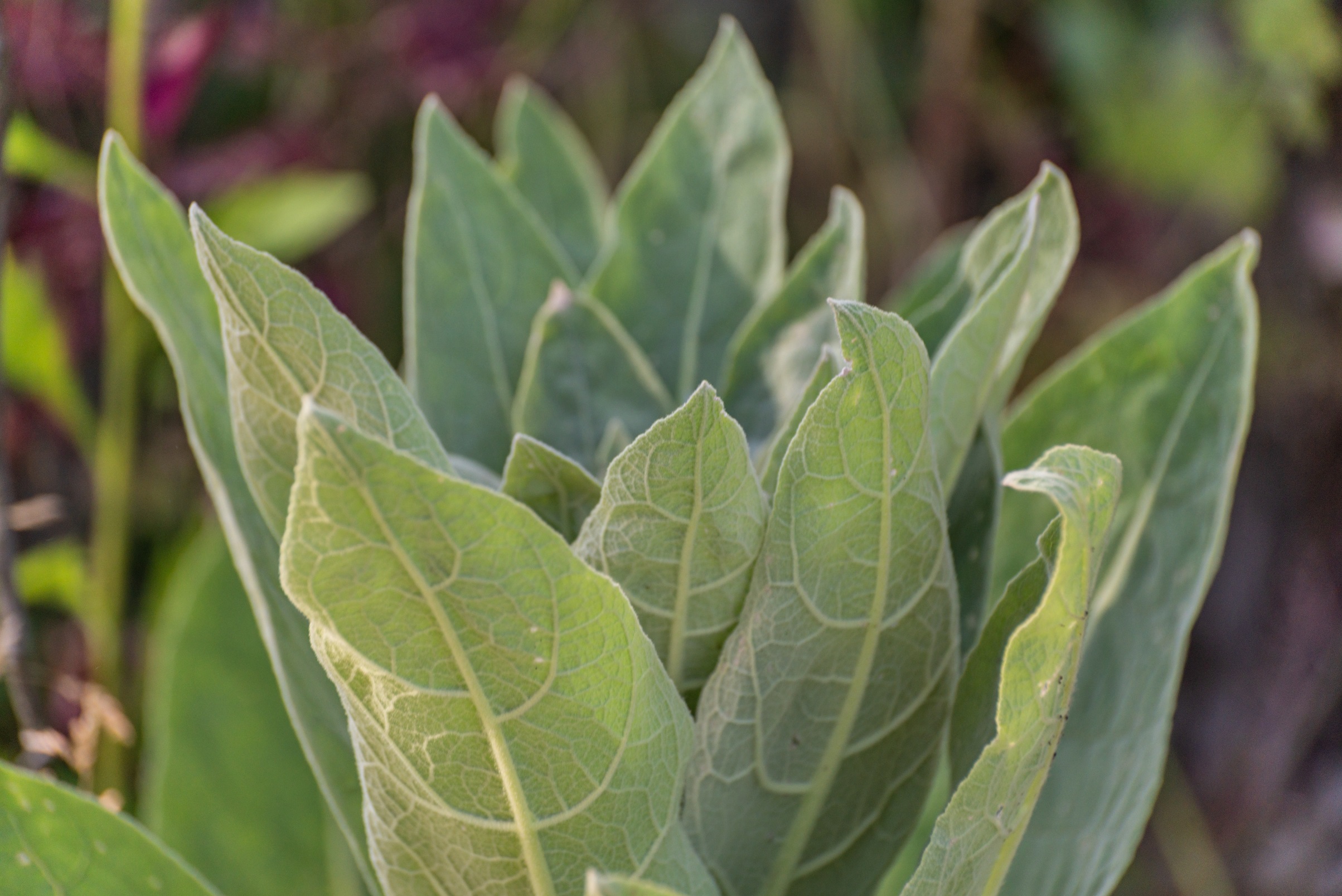
The mucociliary escalator is comprised of the cilia, fine hair-like structures lining the respiratory mucosa, and the natural layer of mucus which coats this membrane. The cilia have a rhythmic movement which along with the presence of mucus allows particles to be carried up and out of the lungs.
The structure of the cilia and the quality of the mucus play an important role in the function of mucociliary clearance from the lungs. Smoking can affect the structure and function of the cilia, whilst colds, other infections, or irritants which cause coughs can affect the quality of the mucus, making the membranes either drier and irritated, or the mucus thicker and more difficult to clear. These changes to the structure of the cilia, and the quality of the mucus can all exacerbate coughing as mucociliary clearance is compromised.
Stimulating expectorants can have a reflex effect on this clearing mechanism, and respiratory demulcents may soothe the membranes allowing the quality of mucus to improve. Both of these herbal actions can help to ease coughs, bringing greater balance to the respiratory system so that mucociliary clearance can work more harmoniously as part of its protection mechanisms.
Stimulatory expectorants can be helpful when a cough is very productive with bronchial congestion due to thick and/or excessive mucus, such as bronchitis (3), and the mucus requires removal.
Licorice and mullein are good examples of stimulating expectorants which are generally safe to use at home.
Respiratory demulcents
These herbs contain a constituent called mucilage, producing a demulcent action which is soothing and anti-inflammatory on tissues and mucous membranes.
Mucilage is slimy in texture when it has been mixed with water (being water soluble), when this mucilaginous slime encounters skin or mucous membranes it creates a protective and soothing barrier which prevents further irritation and allows the tissues to heal. This seems to be the effect of respiratory demulcent herbs in the lower respiratory tract (lungs), and although the mechanism of action is not clear, traditionally it is thought to be due to a reflex effect from the demulcent action on the upper digestive tract.
The suggested link between the upper digestive and respiratory systems can mean that if a herbal medicine is given which affects the mucosa (the lining or like a ‘skin’ on the inside) of the digestive tract, the same effect may occur by a reflex action in the mucosa of the respiratory tract. This can include soothing and restoring its function such as with demulcent herbs.
Respiratory demulcent herbs include marshmallow, slippery elm, plantain, licorice, and mullein. These tend to be helpful for dry, irritable, and tickly coughs (3).
Respiratory spasmolytics
These herbs help to relax the bronchioles, which are the fine branches of the lungs connecting the larger bronchi where air travels into the lungs. The alveoli are small sacs in the deepest part of the lungs where gaseous exchanges take place as we breathe and oxygen passes through into the blood.
There are some very strong respiratory spasmolytic herbs which are only recommended for use under the guidance of a herbalist such as lobelia, ephedra, and datura. Whilst extremely effective at relaxing the airways and easing coughs these herbs have a very small dosage range, above which can be dangerous and at worse fatal. This is why they are specially regulated for use only by qualified medical herbalists, and not on general sale.
Gentle yet still effective respiratory spasmolytics which are generally safe to use at home include hyssop, thyme, elecampane, and licorice. These herbs are helpful when there is a respiratory spasm and tightness with a non-productive cough.

Lower respiratory tonics
Tonic herbs are traditionally considered to help improve the tone and function of a body system, and some herbs are specifically helpful in the case of the respiratory system, whilst also having an expectorant action.
Examples of lower respiratory tonic herbs (which will help to improve the function of the lungs) include elecampane and mullein.
Antitussives
These herbs reduce the amount and severity of coughing, which may be through soothing irritability such as respiratory demulcents, or through removing congestions such as expectorants (3).
An example of an antitussive herb is wild lettuce which helps by relaxing the muscles of the respiratory system, and can be taken in the case of persistent or nervous coughs.
However, antitussives are only recommended for very short term relief of coughing since suppressing the cough reflex can prevent mucus from being expectorated. It is also best to combine antitussives with other herbs which will help to restore healthy function of the respiratory system such as respiratory tonics and demulcents mentioned above. If you have a persistent cough it is recommended to seek medical advice.
Licorice (Glycyrrhiza glabra)
Licorice is an all-round wonder herb for coughs, with so many benefits to help soothe the respiratory system and a long history of traditional use for coughs.
Licorice provides a powerhouse of herbal actions which to help alleviate coughs, including anti-tussive, respiratory demulcent, and expectorant. This combination of effects means it can bring an almost immediate feeling of relief for coughs, particularly when taken as a herbal tea, or syrup which has an additional soothing effect.
The mucilaginous quality of licorice makes it soothing for inflamed mucous membranes in the respiratory system whilst providing a protective effect which allows cells to regenerate and repair.
It can be helpful in cases of common cold and associated coughs, acute and chronic bronchitis, and asthma. It is beneficial for both productive and dry coughs. This is because it both soothes and restores mucous membranes in the case of dry, irritable coughs, and in the case of congested coughs with thick mucus it helps to alter the consistency of the mucus making it easier to bring up.
In a recent literature review of potential herbs in the prevention and treatment of COVID-19, based on clinical trials a combination of licorice with standard therapies for COVID-19 patients found significantly reduced hospitalization rates and occurrence of symptoms including cough (4).

Marshmallow (Althea officinalis)
Marshmallow root and leaf both have similar demulcent action due to the content of mucilage (giving a slimy texture). The root is particularly mucilaginous and so soothes and protects inflamed or irritated tissues, especially in the upper digestive tract. According to traditional theory, this may have a reflex action on the mucosa of the respiratory system, and so is helpful when irritation occurs from prolonged coughing or inflammation due to infection or foreign particles.
Marshmallow root is particularly beneficial in soothing and protecting the upper digestive mucosa in cases of acid reflux and so may be helpful if there is a persistent cough accompanied by symptoms of heartburn.
Both the root and the leaf are recommended for the symptomatic treatment of dry, irritable coughs (5).
A recent review of literature looked at the traditional use of marshmallow as a remedy for dry cough. The author found research studies which confirmed the efficacy of marshmallow as a good choice in the treatment of dry cough and other respiratory ailments (6).
Mullein (Verbascum thapsus)
Mullein has an affinity for the respiratory system and can be of great benefit in coughs and respiratory infections.
The high mucilage content of mullein makes it excellent as a respiratory demulcent soothing and healing mucous membranes which may be irritated or inflamed with dry coughs or infections. In addition to this soothing effect, mullein also acts as a stimulating expectorant due to the presence of saponins, which promote mucociliary clearance of the lungs, helpful in cases of cough with thick or stubborn phlegm which is difficult to cough up.
Additionally, mullein is also antimicrobial (and interestingly has a history of traditional use for treating tuberculosis before relevant medications were introduced), and so can be helpful in cases of respiratory infections such as bronchitis.
Mullein can be helpful in cases of acute and chronic bronchitis, colds accompanied by cough, and general lower respiratory catarrh (7).
According to Ayurveda, mullein is energetically cooling helping to dispel heat and congestion from the lungs, and can help to clear accumulation of Kapha, which tends to manifest in cold damp conditions with an accumulation of phlegm and mucus (8).
Thyme (Thymus vulgaris)
Thyme is a well-known culinary herb which can work wonders for coughs when taken as a simple herbal tea. It also blends well in tea or syrup with licorice for soothing coughs.
Thyme has expectorant and spasmolytic action helping to ease the cough reflex bringing benefit to coughs associated with a tight chest and spasm, and in calming dry irritable coughs. The expectorant action also makes it helpful in the case of coughs associated with thick catarrh in the lungs.
Additionally it is helpful in cases of lower respiratory infection which may contribute to coughing, since it has antimicrobial, antibacterial, and antifungal properties meaning it is beneficial for a broad range of causes of respiratory infection. One of the active compounds thymol is highly antibacterial, and has an affinity with the lung tissue which is how it can help clear infection.
Hyssop (Hyssopus officinalis)
According to Ayurveda hyssop is considered a drying expectorant (8), and has a long history of use in both Ayurveda and Western herbal medicine as a whole in the treatment of respiratory infections which come with congestion and cough. The actions of hyssop include expectorant, spasmolytic, and antimicrobial.
It is helpful in cases of colds with cough, bronchitis (acute and chronic), and asthma (7). It is also helpful in alleviating fevers and so can be beneficial in cases where coughs are accompanied by a fever.

Elecampane (Inula helenium)
The root of elecampane is a fantastic lung remedy, being expectorant, antimicrobial, spasmolytic, and a general lung tonic.
It has a long history of traditional use for coughs which are ‘old’ or stubborn to shift, and helps to move thick phlegm, which accompanies coughs particularly in chronic lung conditions such as asthma and emphysema (7).
Plantain (Plantago major / lanceolata)
Plantain is a mucous membrane tonic, helping them to heal and supports their healthy function.
Ribwort plantain has a particular affinity for the tissues of the lungs, and can be helpful in assisting in healing of the respiratory tract following acute lung infections. It has a respiratory demulcent action, strengthening the integrity of the mucous membranes in the lungs, reducing inflammation, and provides an antimicrobial effect, so is helpful for coughs associated with bronchitis.
It can be taken as a simple infusion (herbal tea) made with hot water.
Pelargonium (Pelargonium sidoides / Perlargonium reniforme)
Pelargonium is a herb with expectorant and antibacterial actions, and is recommended in cases of acute bronchitis and common cold (7). It is actually recommended on the NHS website as part of the ‘how you can treat a cough yourself’ (2). In a recent literature review of potential herbs in the prevention and treatment of COVID-19, the efficacy of pelargonium (sidoides) was confirmed based on clinical trials. It was shown to have antiviral properties which would be most effective in the early stages of COVID-19 where excessive inflammation is not present (4).
Slippery elm (Ulmus rubra)
Slippery elm contains mucilage which is well known for its demulcent action on the digestive system and where it soothes and heals inflamed tissues. By a reflex effect slippery elm seems to have a similar demulcent action on the respiratory system, being soothing for dry or irritable coughs.
However, slippery elm has been overharvested and so is being depleted as a species. It is therefore only recommended to purchase from suppliers who can guarantee the sustainability of their sources.
In the absence of this, marshmallow has the same demulcent action on the respiratory tract and so makes an excellent substitute.
Holistic solutions
- Rest will help the body to recover from a cough.
- Staying well hydrated is recommended.
- Lemon and honey with hot water will soothe the airways and provide a vitamin C boost to help the immune system recover. Squeeze half to a whole lemon into a cup for best effects, and this is also good with grated ginger.
- Steam inhalation (See How to make a steam inhalation)
- Smoking cessation (if smoker)
References
- Sharma S, Hashmi MF, Alhajjaj MS. Cough. [Updated 2023 Feb 19]. In: StatPearls [Internet]. Treasure Island (FL): StatPearls Publishing; 2023 Jan-. Available from: https://www.ncbi.nlm.nih.gov/books/NBK493221/.
- Cough. NHS. https://www.nhs.uk/conditions/cough/. Accessed 13 April 2023.
- Bone K, Mills S. Principles And Practice Of Phytotherapy. China: Churchill Livingstone Elsevier; 2000.
- Gajewski A, Kośmider A, Nowacka A, Puk O, Wiciński M. Potential of herbal products in prevention and treatment of COVID-19. Literature review. Biomed Pharmacother. 2021;143:112150. doi:10.1016/j.biopha.2021.112150.
- Commission E. Commission E Monographs. Germany: Bundesinstitut für Arzneimittel und Medizinprodukte (BfArM); 1984-1994.
- Mahboubi M. Marsh Mallow (Althaea officinalis L.) and Its Potency in the Treatment of Cough. Echter Eibisch (Althaea officinalis L.) und seine Wirksamkeit in der Behandlung von Husten. Complement Med Res. 2020;27(3):174-183. doi:10.1159/000503747.
- Bone, K, The Ultimate Herbal Compendium. Warwick, Queensland: Phytotherapy Press; 2007.
- Frawley D, Lad V. The Yoga of Herbs. 2nd ed. Twin Lakes: Lotus Light Publications; 2008.

